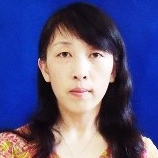Composite Ultrafiltration Membrane for Water Treatment
A special issue of Polymers (ISSN 2073-4360). This special issue belongs to the section "Polymer Membranes and Films".
Deadline for manuscript submissions: closed (10 October 2023) | Viewed by 191
Special Issue Editors
Interests: micro-filtration; ultrafiltration; nano-filtration; reverse osmosis; forward osmosis; electrodialysis; ion exchange membrane
Interests: membranes (UF, NF, FO and RO) preparation; characterization and performance investigations; desalination and trace organics removal using membrane processes; application of membrane technology in food processing
Special Issue Information
Dear Colleagues,
Due to the rule on the unity of opposites between the efficient separation ability of ultrafiltration technology for pollutants in water and the membrane pollution process, this Special Issue of Polymer invites all parties to participate in solving several aspects of the membrane separation process (such as the development and research of anti-pollution ultrafiltration membrane materials; the exploration and development of new organic–inorganic nanomaterial membrane materials, associated polymer materials, and new membrane pore structure; and thickness, roughness, potential, or multi-scale strategies). To solve a more complex system as opposed to a single material, the treatment requirements of different types of water and wastewater should be met, the utilization efficiency of the membrane should be improved, the cost of membrane manufacturing and application should be reduced, the pollution rate of the membrane should be delayed, and the service life of the membrane should be extended. In addition, through the development of new materials and the process simulation, the precise control of the membrane preparation process can be improved, the micro-interface between the ultrafiltration membrane and organic pollutants can be elucidated, the new methods of rare events can be calculated, and new methods of the ultrafiltration process can be predicted. The above list is only indicative and not exhaustive; any work or comments on the water treatment of the wrapped ultrafiltration membrane are welcome. We hope that these contributions will cover a variety of engineering application scenarios, including the selection of ultrafiltration membrane materials (inorganic materials, organic materials, composite materials, blend materials, etc.), membrane structure, membrane preparation, membrane performance characterization, membrane application technology (micro-polluted water source treatment, advanced treatment of drinking water, municipal sewage treatment, industrial wastewater treatment, etc.), membrane pollution control and cleaning technology, membrane process automatic control, etc.
Prof. Dr. Xuesong Yi
Prof. Dr. Limei Jin
Guest Editors
Manuscript Submission Information
Manuscripts should be submitted online at www.mdpi.com by registering and logging in to this website. Once you are registered, click here to go to the submission form. Manuscripts can be submitted until the deadline. All submissions that pass pre-check are peer-reviewed. Accepted papers will be published continuously in the journal (as soon as accepted) and will be listed together on the special issue website. Research articles, review articles as well as short communications are invited. For planned papers, a title and short abstract (about 100 words) can be sent to the Editorial Office for announcement on this website.
Submitted manuscripts should not have been published previously, nor be under consideration for publication elsewhere (except conference proceedings papers). All manuscripts are thoroughly refereed through a single-blind peer-review process. A guide for authors and other relevant information for submission of manuscripts is available on the Instructions for Authors page. Polymers is an international peer-reviewed open access semimonthly journal published by MDPI.
Please visit the Instructions for Authors page before submitting a manuscript. The Article Processing Charge (APC) for publication in this open access journal is 2700 CHF (Swiss Francs). Submitted papers should be well formatted and use good English. Authors may use MDPI's English editing service prior to publication or during author revisions.
Keywords
- nanocomposites
- linear and branched polymers
- ceramic membrane
- simulation models
- membrane preparation
- chemical engineering process







